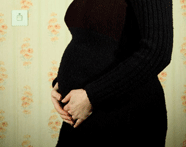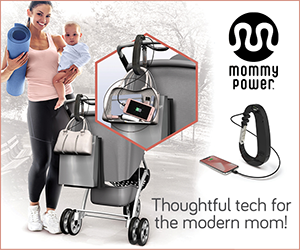Emotional Roulette: Pregnancy After Infertility

“When I was trying so hard to get pregnant, it seemed to me that everything would be cushy and glowing and happy as soon as I got that big fat positive pregnancy test: all my fear and doubt and anxiety would melt away; the hard part would be over,” says Kate Dionne, a western Massachusetts mother who gave birth to her first child two years ago after a series of infertility treatments.
“And in some ways, that was true: once I got pregnant the fear that I’d never get pregnant made less sense. But after the months and months of infertility, both the treatments and the worries, what I had lost was any easy comfortable sense that my body knew what it was doing. I no longer trusted my body to perform properly. Getting pregnant had taken so much effort, so much research, so much intervention, that it was impossible for me to relax and have faith that my pregnancy would result in a happy, healthy baby.”
Moms who have been there will tell you that experiencing pregnancy after infertility is about taking a huge emotional leap of faith – about placing your hopes and dreams on the reproductive roulette wheel and hoping that the marble will land on “healthy baby”. Not surprisingly, pregnancy can be a wild emotional ride from the moment the pregnancy test comes back positive through birth and beyond. “I tried to pretend I was a normal pregnant person, but I couldn’t.”
Karyn Browne, a San Diego mother who gave birth to a baby girl after three years of infertility treatments, remembers spending a lot of time worrying about the possibility of miscarriage – how she would watch for any tell-tale signs of spotting each time she used the bathroom: “I can’t tell you how many hours I spent looking at toilet paper,” she confesses. Browne found it hard to believe that she might actually end up with a healthy baby. “I tried to pretend I was a normal pregnant person, but I couldn’t. It seemed so unreal that we had succeeded through IVF on the pregnancy, how could I possibly get a baby, too? The odds were really against us all around. But we had made it to this point and I tried to stay positive. I would tell myself, ‘I am pregnant today and I really need to enjoy this very special moment,’ instead of constantly worrying about the ‘what ifs’.”
Danielle Donders, an Ottawa mother of two boys, ages four and two, who has experienced miscarriage as well as infertility, was initially optimistic, but that sense of optimism was badly battered after she experienced her first miscarriage. “I tend to be an incorrigible optimist,” she explains. “I can see the good in just about anything. When I got pregnant au naturel just a few weeks after the diagnosis of male factor infertility, I was confident that we had overcome our obstacle and were on our way to being fruitful and multiplying after the unfortunate hiccup of needing just over a year to manage to procreate. When I miscarried that baby at 13 weeks, I was beyond devastated. Not only was I grappling with the actual loss of the baby, but I felt that I had “blown” our miracle. Somehow we had overcome the male factor infertility obstacle, and it was “my” biology that had failed us in being unable to sustain the pregnancy. And failure of my reproductive organs equaled personal failure on my part.” “There can be a huge guilt factor when you have to try so hard to get pregnant, and then pregnancy isn’t all you expected it to be.” Donders’ way of coming with her grief about losing the baby was to move ahead with further infertility treatments. A year later, she was pregnant again – this time with twins. One of the twins was miscarried at 9 1/2 weeks. Mixed in with her feelings of sadness about miscarrying that baby and anxiety about the well-being of her surviving twin were feelings of guilt about not being totally euphoric about her pregnancy. She explains: “There can be a huge guilt factor, I think, when you have to try so hard to get pregnant, and then pregnancy isn’t all you expected it to be. If you have atrocious morning sickness (luckily, I did not) or other pregnancy ailments, you can start to think to yourself, ‘I paid for this?’ I blew our life savings for this? I feel like crap, I can’t sleep, I’m a cow, and I paid for this?’ I have friends who never got over that: who to this day when they have trouble with their kids will not let themselves have a bad day because it’s always in the back of their mind that the alternative – no kids – is worse. This is also something I struggle with. I wish that once we crossed over the threshold into finally being pregnant – finally becoming a parent – we could check our infertility baggage at the door.”
Nancy Dobson, a Montreal mother of three-year-old twin boys, recalls her pregnancy as being a time of high anxiety. “As opposed to women who get pregnant ‘the old-fashioned way,’ those of us who’ve been through infertility treatments tend to get a lot more stressed. We question every little thing as opposed to just going with the flow of everyday life. I know some moms who refuse to travel beyond a 30-minute radius of the hospital for their entire pregnancy ‘just in case.’”
“I desperately hoped for that Hallmark moment, when I would surprise my husband with a positive test wrapped in a bow.” Monica Hincken, a Long Beach, New York, mother of one, found that while her fear never disappeared entirely, it eased up a little. “I started telling people about the pregnancy. I started thinking about names for the baby. I started believing.”
Hincken sometimes regrets the fact that her experience of pregnancy was so different from the picture-perfect pregnancy that every mom-to-be is led to expect: “I desperately hoped for that Hallmark moment – that moment when I would surprise my husband with a positive pregnancy test wrapped in a small box with a bow. Instead, I found out alone while sitting in my office after having my blood drawn by a nurse.” But along with the moments of anxiety and regret, there can also be moments of pure joy.
“I was the proudest pregnant woman on the planet,” Dobson recalls. “I might as well have walked around with a four by six foot sign announcing, ‘I am pregnant!’ It never bothered me once when someone would want to rub my belly or ask me how I was doing. I was pregnant!”
Ann Douglas is the author of numerous books on pregnancy and parenting, including The Mother of All Pregnancy Books and Trying Again: A Guide to Pregnancy After Miscarriage, Stillbirth, and Infant Loss. She has experienced infertility, miscarriage, and stillbirth, as well as the births of four children who are now ages 10 to 19.
Visit www.having-a-baby.com




